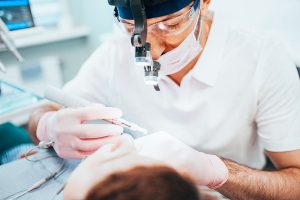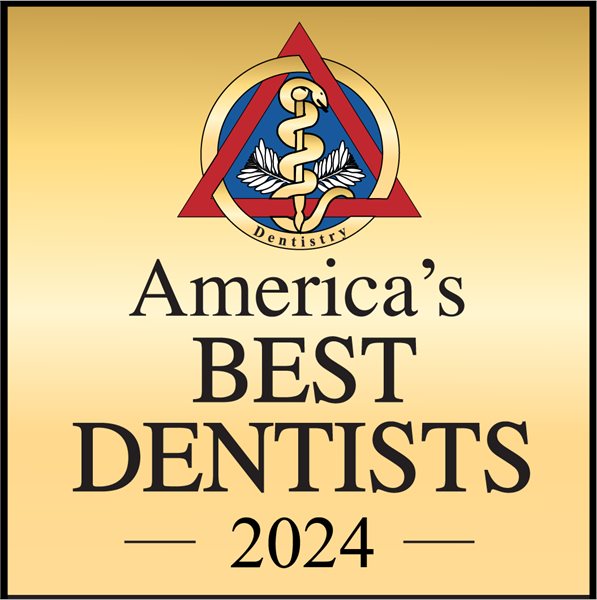Glass Ionomer Dental Fillings
What Are Glass Ionomer Fillings?
Glass ionomer fillings are a type of dental restorative material commonly used to repair decayed teeth, fill cavities, and even replace old fillings. They’re made from a combination of glass powder and an organic acid, such as polyacrylic acid, and are known for their ability to bond chemically to tooth structure.
To schedule your appointment at Kevin H Gropp, DDS, and learn more about the types of dental fillings we offer, contact our dentist in Northridge, CA, today by calling 818-709-8645.

Types of Glass Ionomer Fillings
There are various types of glass ionomer fillings, including:
- Conventional Glass Ionomer: Conventional glass ionomer fillings, also known as glass ionomer cement, are self-cured and have been used for many years in dentistry. They’re suitable for various applications, including small to medium-sized cavities.
- Resin-Modified Glass Ionomer: Resin-modified glass ionomer fillings combine the benefits of traditional glass ionomers with resin-based materials, offering improved strength and aesthetics. The use of resin composite materials enhances their performance and appearance. They’re often preferred for restorations in visible areas.
- Compomer (Composite-Glass Ionomer Hybrid): Compomers are a hybrid of composite resin and glass ionomer materials. They provide better aesthetics than traditional glass ionomers and are used for small to medium-sized cavities.
Glass Ionomer Fillings Uses for Tooth Decay
Glass ionomer fillings may be recommended by your dentist:
- Small to Medium-Sized Cavities: Glass ionomer fillings are particularly suitable for repairing small to medium-sized cavities in both adult and pediatric patients.
- Root Surface Cavities: They can be used on root surfaces to treat cavities caused by gum recession or root exposure.
- Pediatric Dentistry: Glass ionomer fillings are commonly used in pediatric dentistry due to their fluoride-releasing properties and ease of application. These properties make them effective in treating dental caries.
- Non-Stress-Bearing Areas: They’re ideal for non-stress-bearing areas of the mouth, such as the front teeth and some premolars.
Advantages and Disadvantages of Glass Ionomer Fillings
Advantages
- Natural appearance and translucency
- Fluoride release, aiding in cavity prevention
- Minimal tooth preparation is required
- Suitable for non-stress-bearing areas
- Biocompatible and well-tolerated by tissues
- Strong adhesion to the tooth surface, providing additional protection against cavities
Disadvantages
- Limited durability compared to some alternatives
- Sensitive to moisture during placement
- Glass ionomer cement can be sensitive to moisture during placement, which can affect their durability
- Weaker than materials like amalgam
- Aesthetic limitations in highly visible areas
The Glass Ionomer Filling Procedure
The glass ionomer filling procedure begins with a thorough dental examination and diagnosis, followed by tooth preparation and dental sedation to ensure comfort. The procedure for glass ionomer fillings is similar to other types of tooth fillings. The decayed portions of the tooth are removed, and the glass ionomer material is mixed and applied to fill the cavity, with optional light curing to enhance durability.
After shaping and polishing the filling for a natural appearance, patients are advised on oral hygiene and dietary precautions. Regular follow-up appointments may be scheduled to maintain the filling’s integrity. Glass ionomer fillings are favored for their fluoride-releasing properties and suitability for certain dental applications.

Costs
Patients can expect to spend between $75 to $200 on a single glass ionomer filling. They’re typically less expensive than composite fillings but more expensive than amalgam fillings. Factors that will influence the total cost include the size and location of the cavity, as well as your dental insurance coverage.
Frequently Asked Questions
How long do glass ionomer fillings last?
They have a moderate lifespan, typically lasting around 5 to 10 years. However, their longevity can vary depending on factors like the location of the filling, oral hygiene practices, and the type of glass ionomer material used.
Are glass ionomer fillings safe?
Yes, glass ionomer fillings are generally considered safe for dental use. They’re biocompatible, which means they’re well-tolerated by the body. Additionally, they release fluoride, which can help prevent tooth decay.
Contact Dr. Kevin H Gropp Today to Learn About Your Options
Ready to say goodbye to tooth decay? Contact Kevin H Gropp, DDS today to learn more about your dental filling options. To schedule a consultation, call Dr. Kevin H Gropp, a top-rated dentist in Northridge, at 818-709-8645.


